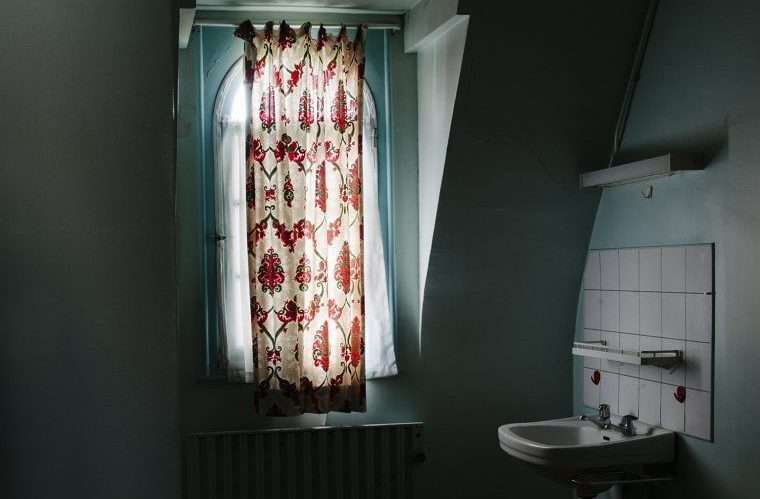Words by Ian Gustav Ahlberg a BA(Hons) Public Relations graduate.
MA Photojournalism and Documentary Photography alumna Lynda Laird has won 1st prize in the Deauville: Student Competition 2016 for her work which tells the story of an orphanage for children whose parents were lost at sea.
As part of the Planche(s) Contact Festival 2016, the french city of Deauville welcomed 10 students from European photography schools for a 10 day residency program. Students were given Deauville as their subject and used their individual creativity and imagination to produce photographs for the City of Deauville collection that would make a difference before the panel of judges and the public.
We caught up with Lynda Laird about the competition, her inspiration and her experience at LCC.
Congratulations on your success at the Deauville 2016 Student Competition! How do you feel about being chosen by such an esteemed jury?
Thank you, I was very shocked! My project was very specific in that I focused on a building in Deauville, an orphanage that was built to house children who had lost their parents to the sea. Because the orphanage is being pulled down this year, it was very important for me to document the building. I am interested in the idea of memory being stored in a place, and I could really feel the past, and a sense of sadness when I walked around the orphanage.
You were given a very broad topic of Deauville, how did you narrow down the brief to play to your strengths and individual style?
I had to propose a project before I was selected for the residency. One part of my initial concept was to use the sea as a camera and expose paper in it at night time, this made sense and so I stuck with that, then someone mentioned the fisherman’s orphanage and I had a eureka moment. I became obsessed with the building and felt that the two strands of the project worked really well together. I really have to feel things are right before I can throw myself in to them and once I walked around the building and saw all the bedrooms I knew it was what I should be doing.
Do you have any words of wisdom to future contestants in the competition?
I think there can be a tendency in a contest like this to try and steer the work towards what you think will win, but as soon as you step away from producing something that is true to who you are, you lose the essence of what makes your work unique.
The residency and competition is such a great opportunity to produce your own body of work and be reimbursed for the expenses, which is such a rarity when making personal projects. Producing something that helps develop your portfolio and your way of working is much more beneficial than to produce something with the idea of winning in mind. If it’s sincere, then that will come across in the project.
Moving on to you and your craft, where do you draw your inspiration?
I grew up in Orkney, Scotland and was surrounded by the sea; it has become a massive source of inspiration for my work. I can’t seem to escape working with water! I like that this can narrow things down and it can be a good starting point for developing work.
I also get a lot of inspiration from being in landscapes; I am interested in how people respond to land, and reading about landscape photography has become a big part of my practice now, thanks to Max Houghton, my course leader.
Are there any photographers that inspire you?
Many photographers have inspired me, but the projects I am working on really determine where I look for inspiration. More recently, I get excited by sound pieces; gathering sounds, plants and objects has become part of my practice and my work has become more layered as a result. I guess I am trying to capture a feeling of a place more than just the visual.
What kind of creative process do you go through when taking photos?
My approach to making work starts with a lot of walking and listening. I like to get a feel for a place before I start taking pictures. Once I found the orphanage in Deauville, I spent every day in there, from morning to night, listening to the sounds my footsteps walking between the different rooms. Then I started photographing. With my last four projects, I used a sound recorder before the camera.
How did your experience at LCC contribute to your development as an artist?
My time at LCC contributed massively to my development as an artist and I can’t thank course leader, Max Houghton enough for all her wisdom and encouragement. Before I started the course, I was trying to fit myself in to a box, producing work I thought was right for industry.
Max Houghton and Ed Clark helped me embrace my existing my experience, skills and knowledge to produce work that was true to me. I never thought I would be making work the way I am now, but the course really gave me the space and support to find a style and practice that suits me.
What projects are you working on at the moment?
I have two more residencies to take part in next year, both back in France. I was lucky enough to meet 30 of the orphans from Deauville and a couple of the nuns who looked after them who are now in their nineties. I’d like to do something with them, possibly using old imagery they have of their parents and the building. The projects I work on tend to be quite slow and layered, so I can usually manage 1 big piece of work a year, and a couple smaller pieces.





